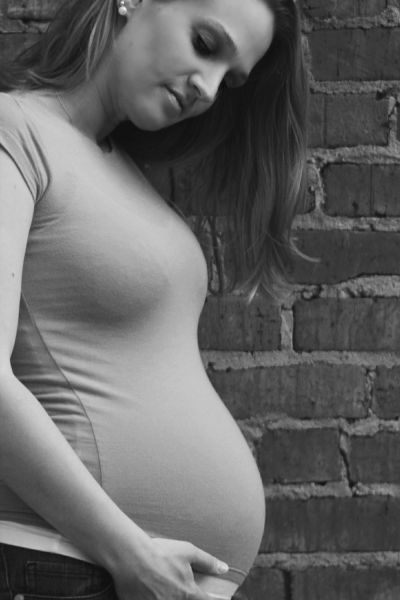Congratulations! You're pregnant! Until the little one arrives, some of you will choose to continue working and since you are pregnant there is a range of entitlements available to you.
Sick Leave
Even though you are pregnant, you still get your ordinary sick leave entitlements.
Pregnancy is not considered an illness or injury, however, if you experience a pregnancy-related illness or injury, sick leave can be taken.
Special Maternity Leave
If you are eligible for unpaid parental leave, you can take unpaid special maternity leave if:
- you have a pregnancy-related illness or
- your pregnancy ends after 12 weeks because of a miscarriage, termination or stillbirth.
If you take Special Maternity Leave because of a pregnancy-related illness, the leave will end when the pregnancy or illness ends, whichever is earlier. If you are taking leave due to a miscarriage, termination or still birth it can continue until you're fit for work.
Special maternity leave won’t reduce the amount of unpaid parental leave that you can take.
Notice and Medical Certificates
You will need to tell your employer as soon as possible (which can be after the leave has started) that you're taking special maternity leave. You will also need to inform them on how long you expect to be on leave.
Your employer can ask for evidence and can request a medical certificate.
Safe Jobs
Since you are pregnant, even as a casual, you are entitled to move to a safe job if it isn’t safe for you to do your usual job because of your pregnancy. Even if you aren’t eligible for unpaid parental leave.
When moving to a safe job, you will still get the same pay rate, hours of work and other entitlements that you got in your usual job. You and your employer can agree on different working hours. You will stay until it's safe to go back to her normal job, or until you give birth.
You will need to give your employer evidence that:
- you can work but can’t do your normal job (including why your normal job isn't safe) and
- how long you shouldn't work in your normal job.
Your employer can ask for this to be a medical certificate.
Note:
CMV is a virus that can be contracted in a childcare centre and can be fatal while your pregnant. It is usually transmitted through blood, urine, faeces and saliva. To protect you and your unborn baby you will probably need to minimise your exposure to changing nappies, toilet training, cleaning up body fluids etc. Even if you do have excellent hygiene practices you still are at risk of contacting it.
When No Safe Job Is Available
If there is no safe job available then you can take no safe job leave. If you're entitled to unpaid parental leave, no safe job leave is paid.
When working as a full-time or part-time employee, no safe job leave is paid at the base rate of pay for ordinary hours of work.
For a casual, no safe job leave is paid at the base rate of pay (not including the casual loading) for the average number of hours you would have worked in the period you're on leave.
If you aren't entitled to unpaid parental leave can take unpaid no safe job leave.
Being Directed To Take Parental Leave
When pregnant and you want to work in the 6 weeks before your due date, your employer can ask for a medical certificate within 7 days that states:
- you can continue to work
- it’s safe for you to do your normal job.
If the certificate says that you're fit for work but it isn’t safe for you to continue in your normal job, then you will be entitled to a safe job or no safe job leave.
If you don’t provide a medical certificate or the certificate says you can’t continue work at all then your employer can direct you to start unpaid parental leave.
Your unpaid parental leave starts when you are directed to take unpaid parental leave and will count as part of your total unpaid parental leave entitlement.
If you have planned to take parental leave at a later date after the birth, the period of directed leave doesn’t have to be taken in a continuous period of the other parental leave.
For more information: Paid and Unpaid Maternity Leave Entitlements
Protection from Discrimination
You can’t be discriminated against because you're pregnant. This means that you can’t be fired, demoted or treated differently to other employees because you're pregnant. Here is an example of a woman being discriminated against becasue she is preganant.
Melissa is a full-time employee and works in a clothing store. She tells her boss Peter that she is pregnant.
A few weeks later her hours are reduced and she is told that she is now a part-time employee. When Melissa asks Peter about this he tells he is reducing her hours to help her with her pregnancy and that in his family the women always reduce their hours when they are pregnant.
Even though Peter thinks he is helping Melissa this is still discrimination. He is treating her differently to his other employees because she is pregnant.
Each state and territory has a local anti-discrimination body, which regulates and investigates breaches of state and territory anti-discrimination laws. You will be able to find the contact details on Fair Work Australia.
I hope this article provides you with useful information about your entitlements when working whilst pregnant. Take care of you and your little one and enjoy the journey into motherhood!
Reference:
Fair Work Ombudsman - Pregnant Employee Entitlements







 As an Educator in Australia, your pay rate falls under the Children’s Services Award 2010. This award states the minimum amount that an employer can
As an Educator in Australia, your pay rate falls under the Children’s Services Award 2010. This award states the minimum amount that an employer can When working as a qualified Early Childhood Teacher (with a university degree) within a service, your rate of pay will come from the Educational Services
When working as a qualified Early Childhood Teacher (with a university degree) within a service, your rate of pay will come from the Educational Services When working as a Diploma Qualified Educator your pay rate is from the Children's Services Award 2010. This Award states your minimum rate of pay
When working as a Diploma Qualified Educator your pay rate is from the Children's Services Award 2010. This Award states your minimum rate of pay When working as a Cert 3 Qualified Educator, your pay rate is from the Children's Services Award 2010. This Award states your minimum rate of
When working as a Cert 3 Qualified Educator, your pay rate is from the Children's Services Award 2010. This Award states your minimum rate of Educational Leaders play a crucial role in their early childhood service by ensuring that the educational program aligns with best practices and supports the holistic
Educational Leaders play a crucial role in their early childhood service by ensuring that the educational program aligns with best practices and supports the holistic In early childhood education and care, ratios are more than a technicality—they are a frontline safeguard. Every child deserves responsive supervision, emotional connection, and developmental
In early childhood education and care, ratios are more than a technicality—they are a frontline safeguard. Every child deserves responsive supervision, emotional connection, and developmental With the new national child safety reforms kicking in on 1 September 2025, early childhood services like yours have a real opportunity to lead the
With the new national child safety reforms kicking in on 1 September 2025, early childhood services like yours have a real opportunity to lead the Here’s a comprehensive Mobile Phone and Smart Watch Policy tailored for early childhood education and care (ECEC) services in Australia, aligned with the latest 2025
Here’s a comprehensive Mobile Phone and Smart Watch Policy tailored for early childhood education and care (ECEC) services in Australia, aligned with the latest 2025 The Sea of Fish Challenge is a national initiative that invites children, educators, families, and communities to create and display fish artworks as a symbol
The Sea of Fish Challenge is a national initiative that invites children, educators, families, and communities to create and display fish artworks as a symbol Cold weather play is incredibly beneficial for early childhood development! It helps children build resilience, strengthen their immune systems, and develop essential motor skills. Here’s
Cold weather play is incredibly beneficial for early childhood development! It helps children build resilience, strengthen their immune systems, and develop essential motor skills. Here’s


